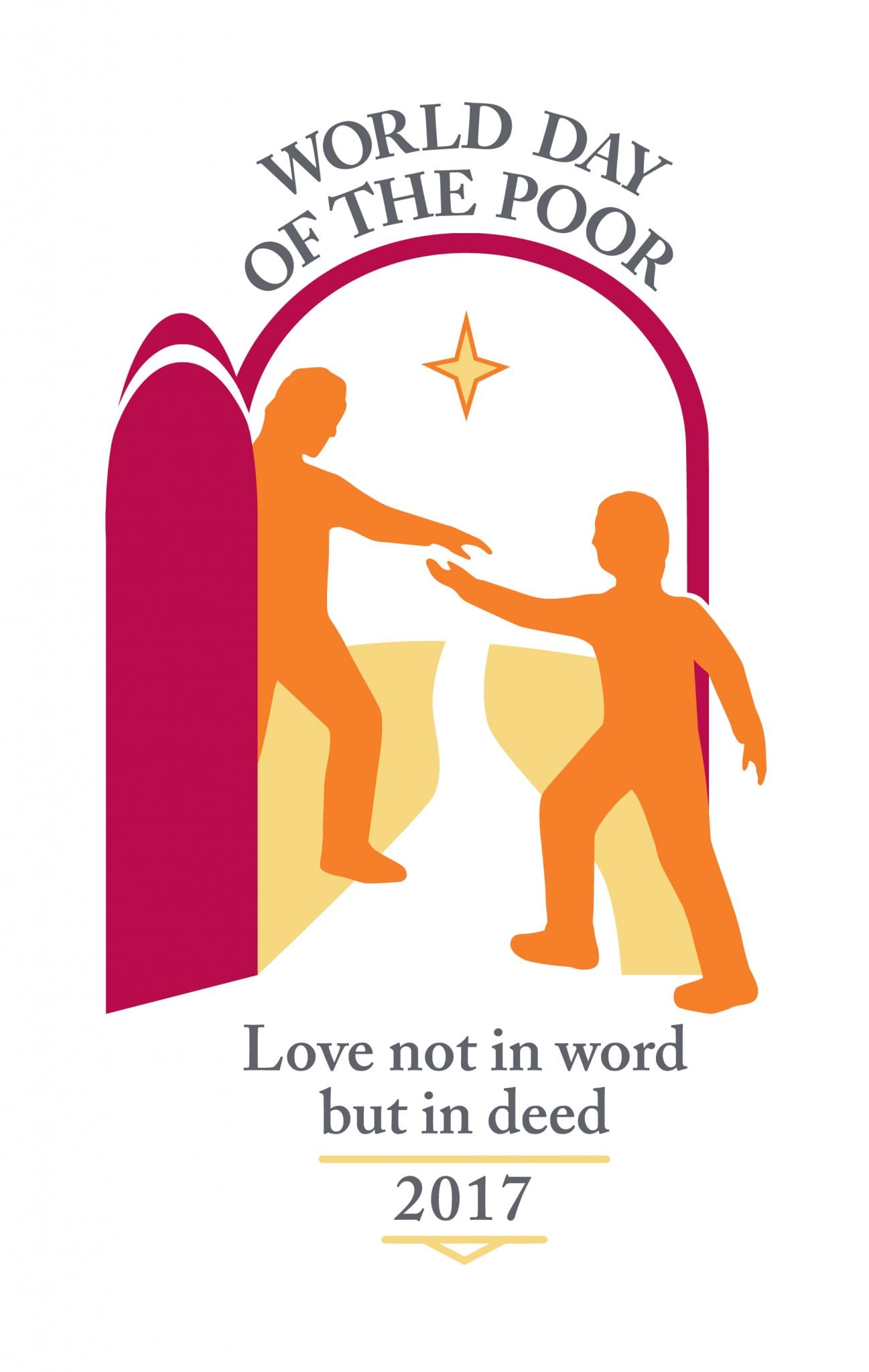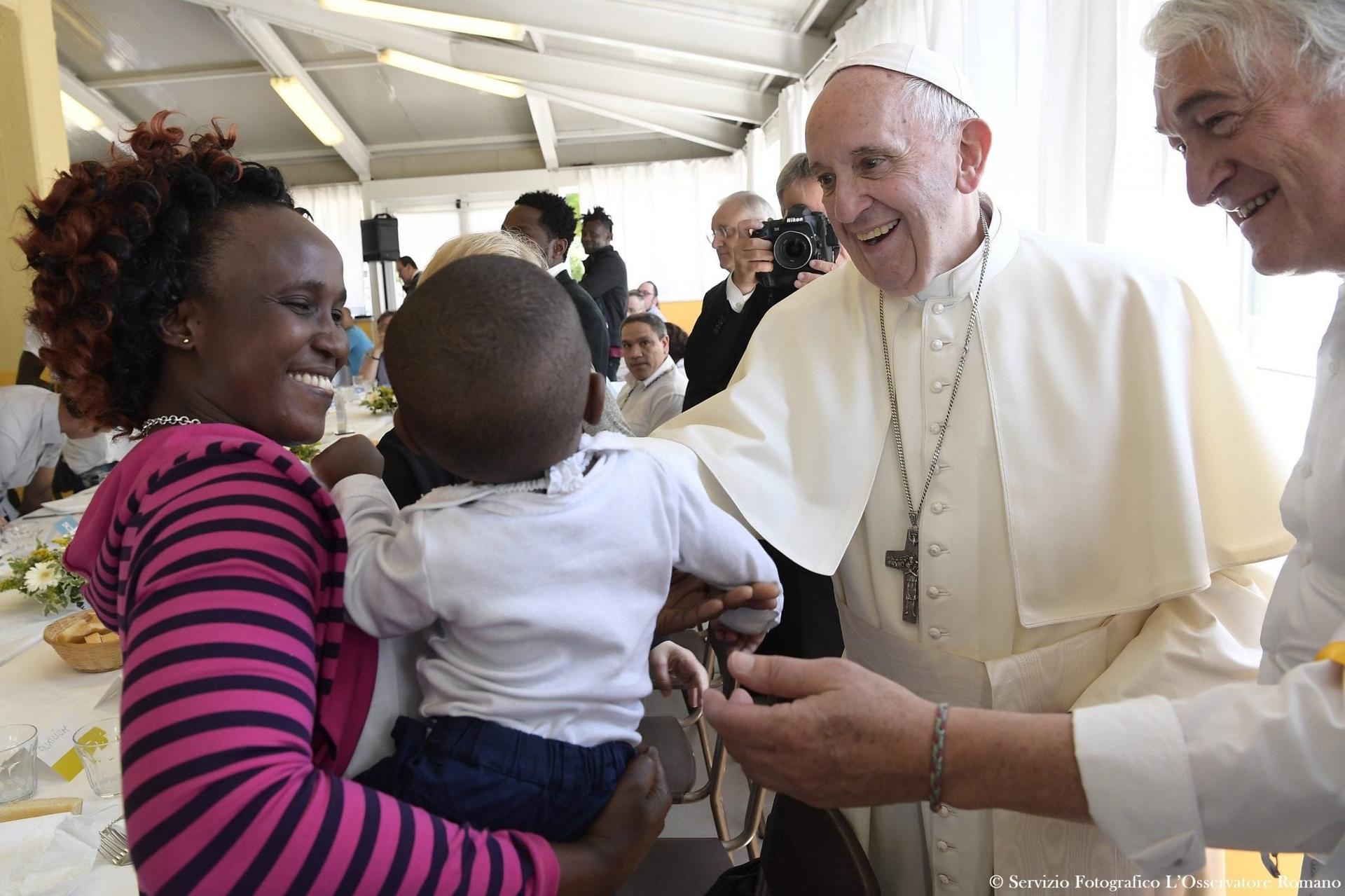ROME – Pope Francis issued a statement on Tuesday June 13 in anticipation of the First World Day of the Poor, inviting the Church but also people around the world of other faiths to love and cater to the poor not only with “with words but with deeds.”
“The poor are not a problem,” the pope wrote in the statement. “They are a resource from which to draw as we strive to accept and practice in our lives the essence of the Gospel.”
After the celebration of the Year of Mercy November 13 with the homeless and the ‘marginalized’ the pope wrote in his apostolic letter, Misericordia et Misera (Mercy and Misery), that he would like for the Church to celebrate the 33rd Sunday of Ordinary Time as a World Day of the Poor.
This year the celebration will fall on November 19.
God’s love for us “cannot go unanswered,” the pope wrote, and “it so sets our hearts on fire that all who experience it are led to love back, despite their limitations and sin.”
This can only happen if we welcome God’s grace, the pope added, so that we might be able to love not only God but also our neighbors.
Francis took as example the Acts of the Apostles that show the Church’s early zeal in answering the cry of the poor. “The earliest community realized that being a disciple of Jesus meant demonstrating fraternity and solidarity, in obedience to the Master’s proclamation that the poor are blessed and heirs to the Kingdom of heaven.”
But even though the early Christian community shared everything and helped the poor, the pope recognized that there were times when the Church failed to abandon a “worldly way of thinking.”
Yet the Holy Spirit was there to keep the faithful on the righteous path, the pope said, by inspiring men and women to devote their lives to helping the poor.
“Over these two thousand years, how many pages of history have been written by Christians who, in utter simplicity and humility, and with generous and creative charity, have served their poorest brothers and sisters!” he wrote.
An example is given by the life of St. Francis of Assisi, the pope said, whose “testimony shows the transformative power of charity and the Christian way of life.”
Acts of generosity and kindness must not be limited to occasional volunteer work, Francis insisted, but must also strive to find the true origins of injustice and lead to a true encounter with the poor.
“If we truly wish to encounter Christ, we have to as a response to the sacramental communion bestowed in the Eucharist,” the pope said.
The Argentinian pontiff invites the faithful to “touch” the body of Christ “in the suffering bodies of the poor,” not hesitating to embrace them and meet their gaze. “Their outstretched hand is also an invitation to step out of our certainties and comforts, and to acknowledge the value of poverty in itself,” he said.

The logo prepared to represent the World Day of the Poor shows an open red door with two figures on either side. Both figures have their hands outstretched to reach for the other.
The benefit of the encounter goes both ways and as we stretch our hands to help the poor, in turn “with their trust and readiness to receive help, they show us in a quiet and often joyful way, how essential it is to live simply and to abandon ourselves to God’s providence,” the pope said.
The pope’s message wishes to emphasize the encounter as an opportunity for evangelization, as shown by the star depicted on the upper half of the logo.
“We often forget that poverty is also a virtue,” said Archbishop Rino Fisichella, President of the Pontifical Council for the Promotion of the New Evangelization, during the press conference at the Vatican. “Not as a material poverty but as a vocation that helps to identify what is essential in life.”
The pope called the faithful not to forget that for Christ’s disciples poverty was a call to follow Jesus in his own poverty, and added that the concept of poverty can be a virtue “that avoids looking upon money, career and luxury as our goal in life and the condition of our happiness.”
This way, the pope added, poverty “is the yardstick that allows us to judge how best to use material goods and to build relationships that are neither selfish nor possessive.”
On one hand “we need to hear the cry of the poor and commit ourselves to ending their marginalization,” but on the other, the pope asks “the poor in our cities and our communities not to lose the sense of evangelical poverty that is part of their daily life.”
In his statement Francis presents a “bitter and endless list” of reasons behind the plague of poverty and suffering in the world, from oppression and violence to moral degeneration and greed.
“Tragically, in our own time, even as ostentatious wealth accumulates in the hands of the privileged few, often in connection with illegal activities and the appalling exploitation of human dignity, there is a scandalous growth of poverty in broad sectors of society throughout our world,” the pope said.
“God created the world not only for the few privileged but for all,” Fisichella told reporters. “Just as poverty knows no limits or barriers because it has extended to the whole world, in the same way solidarity must be recognized as an expression of sincere fraternity for all.”
Francis wrote that this day “is meant, above all, to encourage believers to react against a culture of discard and waste, and to embrace the culture of encounter.”
He encouraged people to make real gestures of mercy, especially in the week preceding the World Day of the Poor, such as inviting the marginalized to celebrate Mass together but also not shying away from inviting them to be guests at our table.
Francis himself will preside at the Mass in St. Peter’s Basilica during the November celebration, with poor people and volunteers. After the liturgy, he will invite 500 of the poor to the Paul VI Audience Hall at the Vatican to join him for lunch.
Though concrete gestures are highly encouraged and much needed, the pope wrote that it is important not to underestimate the importance of prayer, which “expresses and brings together the cry of all who suffer from life’s uncertainties and the lack of what they need.”
In the standing tradition held by previous popes of instituting World Days, Francis said he hopes that this day dedicated to the poorest and most marginalized in our society may “become a powerful appeal to our consciences as believers, allowing us to grow in the conviction that sharing with the poor enables us to understand the deepest truth of the Gospel.”











